
She fought many fires in the last 20 years. She also saw many scenes of blackened hills and scorched animals. Some fires were during the day, others at night, but just hearing about the last one she quenched is enough to begin to understand who she is.
It was a hungry fire that devoured the hills around her house for three weeks. A broken, inaccessible piece of land, located in the canton of La Cruz known as El Hacha (The Ax). Lucrecia slept by day and fought the fire at night, when the sun let up.
The last time she went into the field to contain the flames, she battled all night and did not stop when morning came. The heat beat her so hard that when she returned home, her body collapsed: a fever knocked her out and she ended up in the clinic. The hillside and her body both burned as if they were one and the same.
At 61 years old, Lucrecia Pastrana Pastrana is the volunteer firefighter with the most experience in the ACG (Guanacaste Conservation Area), the first conservation area founded in the country more than 30 years ago. She is also responsible for founding one of the first volunteer fire brigades in the ACG. She did it in Colonia Bolaños, the small town of La Cruz where she has lived since she arrived from Nicaragua at 38 years old
Living Among the Embers
“People were already used to all of this smoke and these burnings,” Lucrecia recalls. Fire was another element within the landscape, something commonplace.
When the 20th century was coming to a close, the ACG Fire Management Program coordinator, Julio Diaz, visited Colonia Bolaños. They needed to find a community leader to help them form a brigade right here in this place, an area known for causing the most fires near Guanacaste National Park.
She served as a liaison between the ACG and the community to recruit people who would form the brigade. “It took us a few years. Don’t think it was fast,” Lucrecia relates. One of the recruits was her own husband.
Lucrecia and Juan remember that at the beginning they put out the fires with sheer willpower and improvising. They ran to the field to attack the fire with machetes, piles of green leaves and rubber boots that ended up melted. “It was a rough way, but we managed it as long as the fire didn’t spread,” says Lucrecia.
ACG officials started going to the school to give talks about protecting the ecosystems around their community. Several of the children who attended those lessons are now the adults who keep the brigade active.
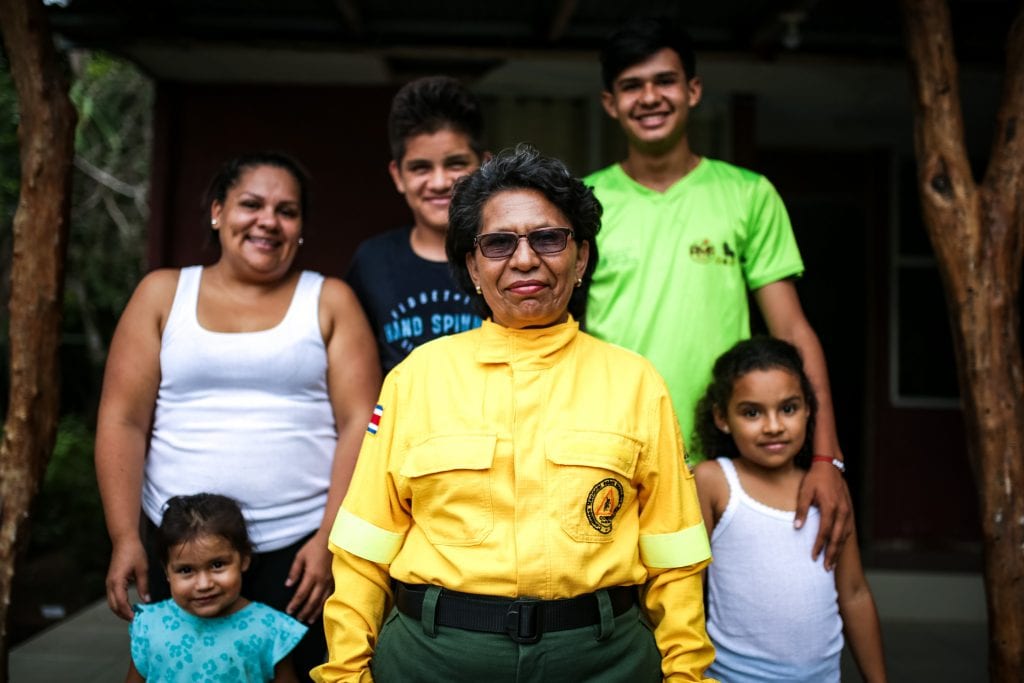
Lucrecia organized two generations of brigade members who, in addition to putting out fires, conduct recycling campaigns, set up garbage cans and give talks in their community. Credit: César ArroyoPhoto: César Arroyo
Her legacy of service doesn’t stop there: Lucrecia also inspired three generations of volunteer firefighters: sons, daughters, daughters-in-law, grandsons and granddaughters who are still joining.
After the ashes
In 2019, the 503 hectares (1243 acres) of the Junquillal Wildlife Refuge, a forest 15 km (9 miles) from where Lucrecia lives, burned from one end to the other. Since the year 2000, there have not been as many fires as that year. Most importantly, all of the fires, according to Minae, were caused by human actions.
“That is what saddens me the most, seeing how the countryside is destroyed with fire. It ends up looking like it’s dead,” says Lucrecia without even blinking.
She has also carried all those consequences in her own body: her lungs, loaded with soot, agree. She started developing asthma some time ago. The attacks come every couple of years she says, so she has to inject medication periodically.
In spite of everything, she affirms that she would do it all again: the fire, the education, convincing her husband, persuading the community. Now her work is more focused on recycling campaigns, talks in schools, and setting up garbage cans in the community. She is also president of Colonia Bolaños’ rural waterboard and the school’s committee.
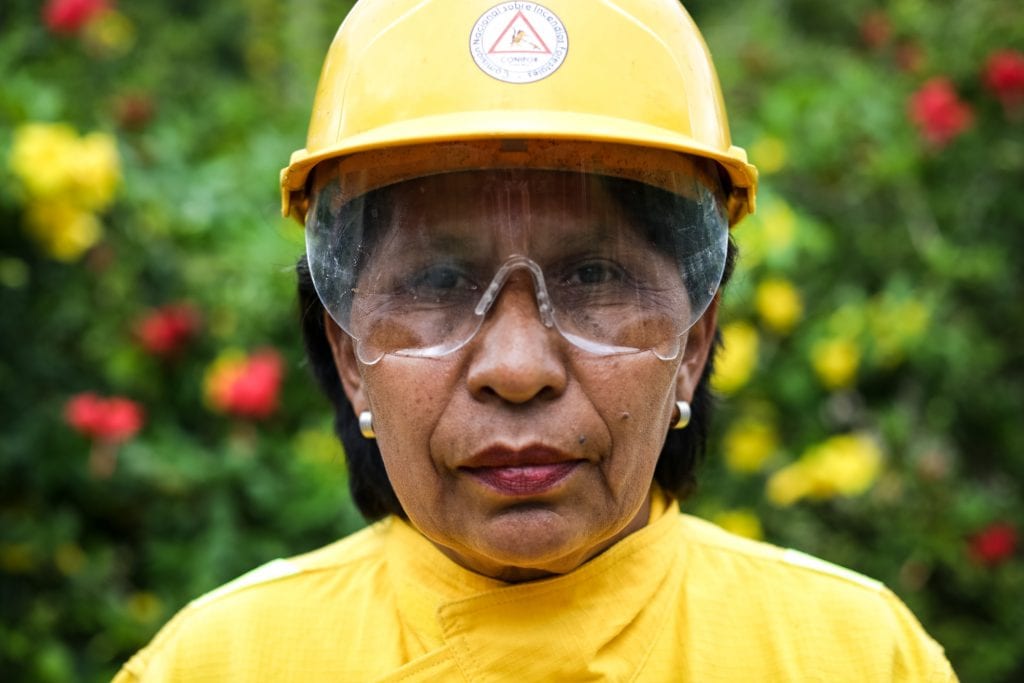
“That is what saddens me the most, seeing how the countryside is destroyed with fire. It ends up looking like it’s dead,” Lucrecia Pastrana, volunteer firefighter. Credit: César ArroyoPhoto: César Arroyo
Her efforts during all these years are notorious. The very town that used to be surrounded by dry pasture is now a secondary forest, and Lucrecia says she has seen tapirs and peccaries pass by. “I have already completed my work. It’s already done”, she convinces herself.


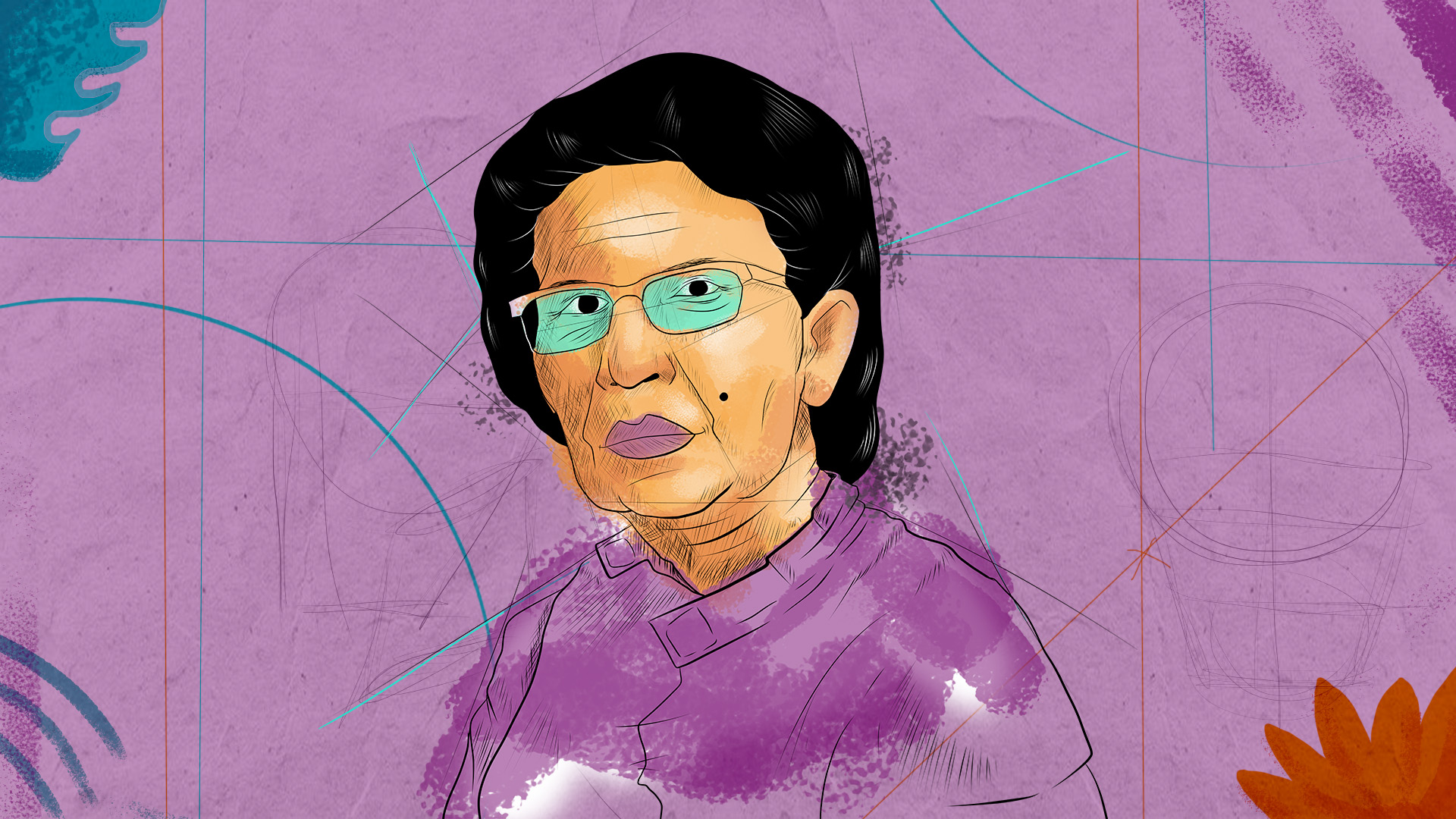
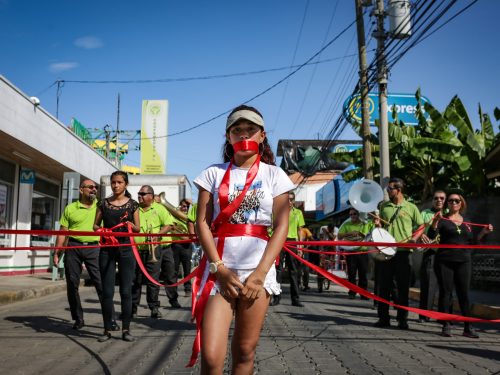
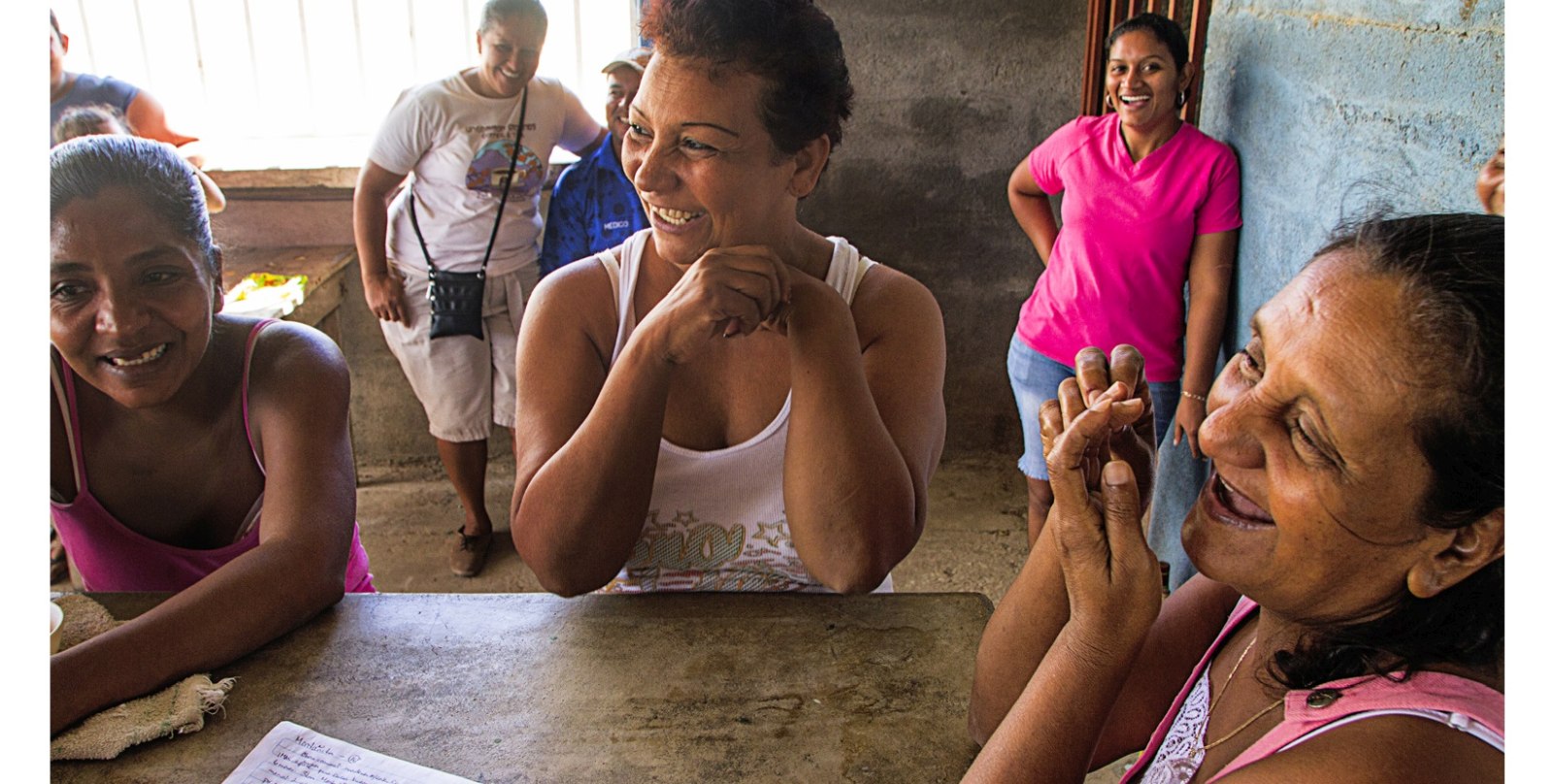
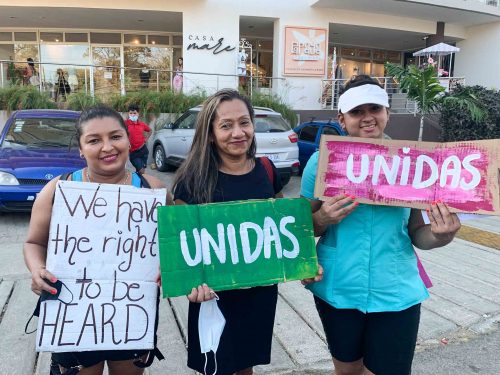

Comments